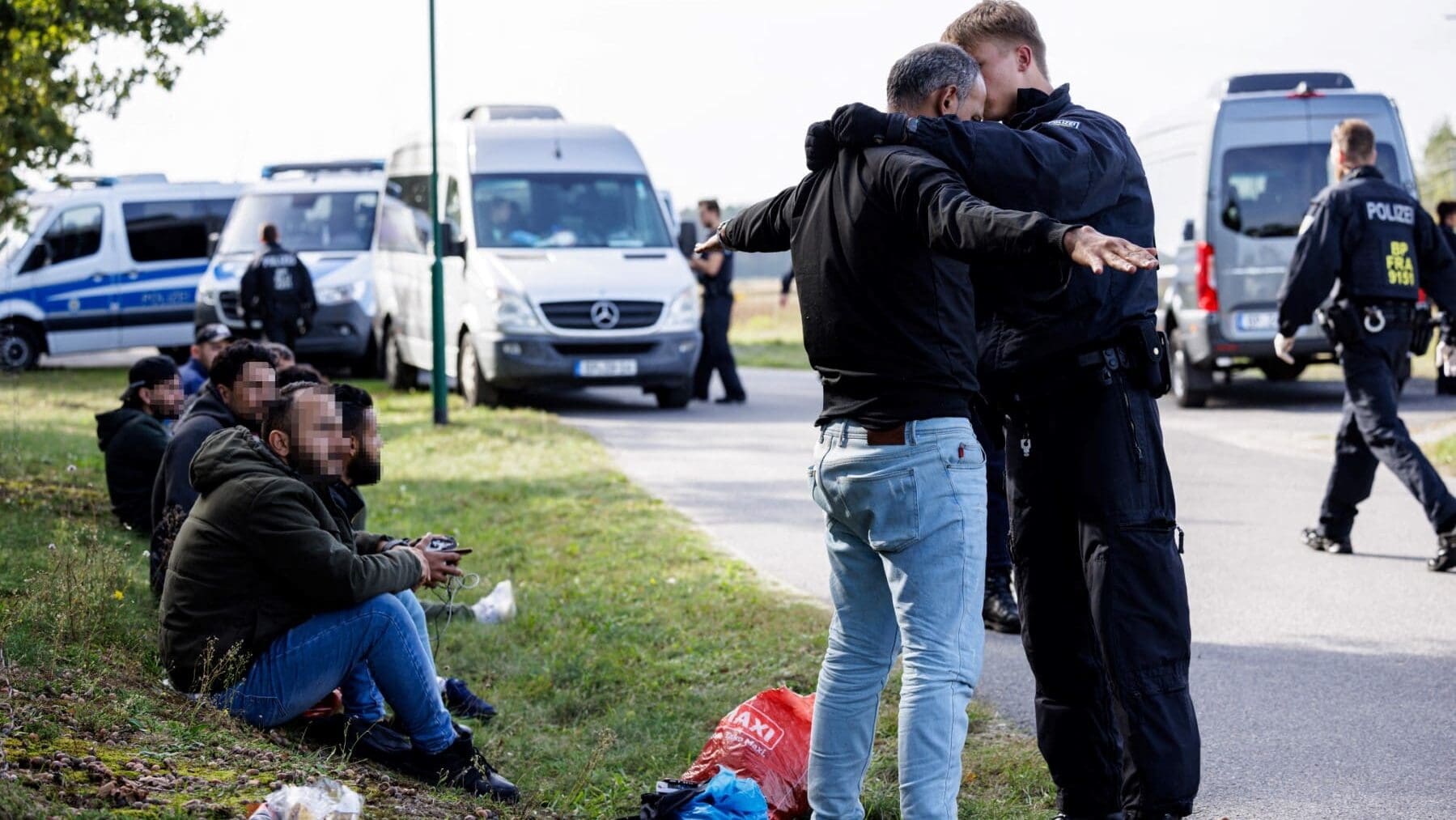
German border patrol officers check migrants who illegally entered from Poland, 2023.
Photo: Jens Schlueter / AFP
Chancellor Olaf Scholz’s German Government is under increased pressure from both within and outside his ruling coalition to reintroduce nearly all the hard borders around Europe’s largest country. A growing number of lawmakers see it as the only way to curb the inflow of illegal migrants—reinforcing fears that the EU’s failure to prevent illegal crossings at the bloc’s external borders will eventually result in the death of Europe’s precious Schengen area.
Germany, along with a few other North Western European countries, is the primary destination of illegal migrants coming to the EU from North Africa and the Middle East. Illegal entries into the country reached a seven-year high in 2023, leading to temporary border checks with Austria, Poland, Czechia, and Switzerland being reintroduced last fall.
That was not enough, it seems. The opposition Christian democratic CDU recently called for permanent hard borders to be reinstated around Germany. According to party leader Friedrich Merz, it is one of the measures “that do not cost money, but could very quickly change the mood in the country for the better.”
The fact that this proposal is coming from the center-right CDU marks a significant shift in German (and European) political sentiment. It also underlines the urgency of the situation. After all, former CDU Chancellor Helmut Kohl is regarded as the father of the Schengen area and the Christian Democrats still label themselves as “Germany’s European party.” The party is arguably the most influential force in Brussels as well, with even EU Commission President Ursula von der Leyen hailing from their ranks.
Yet it was the CDU that pushed for the temporary checks to be put in place last year, pressuring the social democrat (SPD)-led government into eventually dropping its opposition. But now there is also movement within the government. Although Scholz’s SPD was quick to shut down the idea of permanent checks this time, the government’s junior coalition partner, the liberal FDP, has surprisingly come out in support of the proposal.
The numbers do indeed back up what CDU says. As recently as last month, during this year’s EURO football championship, Germany reintroduced border checks along the main entry points into the country. Between June 7th and July 19th, the authorities uncovered more than 9,000 illegal crossings, turning back over 6,400 people and even arresting 275 alleged human smugglers.
“[The numbers] … show to which extent freedom of movement is abused by criminals and endangers citizens,” the CDU’s deputy lead MP on European affairs, Detlef Seif said. “The ‘spirit of Schengen’ is often misinterpreted as unconditional freedom of movement,” he added, noting that it is the lack of effective external border control in the EU as a whole that necessitates reinstating internal ones.
This last point is ironic, given that the European People’s Party, effectively led by the CDU, was the main champion of the EU’s new flagship Migration Pact that was finalized after years of negotiations earlier this year.
One of the primary reasons for the national conservative groups’ (ECR and ID) opposition to the Pact was that it largely leaves the EU’s external borders unguarded. Conservative MEPs have long been saying that the lack of external border controls will eventually lead to the death of the Schengen area, yet the EPP consistently declined to address this issue within the package. It seems the CDU now reaps what it has sown, without even being aware of the irony.
And it is not just Germany, of course. Many other countries have been forced to reinstate temporary border checks in the past year, most led by governments that supported this wildly ineffective Migration Pact. Earlier this week, Denmark also announced it was considering implementing checks on its crossing from Sweden due to the increased cross-border criminal activity related to migrant gangs.
